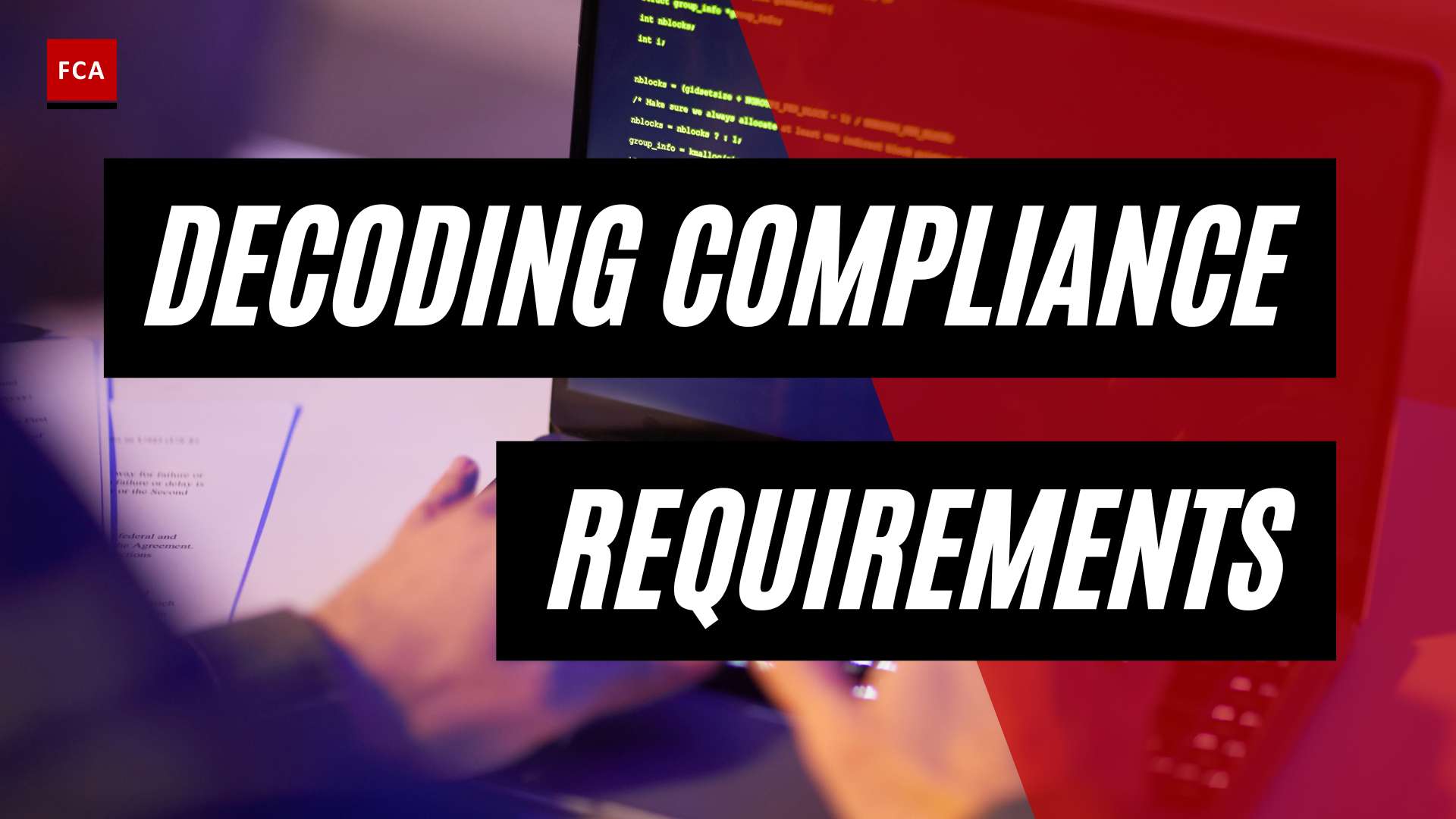Impact of COVID-19 on AML Efforts
The COVID-19 pandemic has had a significant impact on anti-money laundering (AML) efforts worldwide. As criminals adapt to the changing landscape, several emerging trends in financial crimes have emerged, leading to an increase in fraud, scams, and challenges in Know Your Customer (KYC) and onboarding processes. Regulatory compliance during this crisis has become more crucial than ever.
Emerging Trends in Financial Crimes
The disruptions caused by COVID-19, such as border closures and flight cancellations, have created new opportunities for criminals to exploit vulnerabilities in international trade. Europe’s top banking regulator has instructed financial institutions to pay closer attention to transactions linked to international trade due to these disruptions (Napier). Criminals have been seeking new ways to move illicit funds and goods across borders, necessitating increased vigilance in AML efforts.
Increase in Fraud and Scams
The pandemic has witnessed a surge in financial crimes, including fraud and scams. Imposter scams, investment scams, product scams, and insider trading have become more prevalent, similar to the patterns observed after natural disasters. In the UK, coronavirus-related fraud reports increased by 400% in March alone, indicating a sharp rise in financial crimes during the pandemic. The Financial Conduct Authority (FCA) has also warned about an increasing number of scams in the months to come.
Challenges in Know Your Customer (KYC) and Onboarding
The complications caused by lockdowns and remote work arrangements have posed challenges in conducting effective KYC procedures and onboarding new customers. The Financial Conduct Authority (FCA) has issued advice on modifying KYC and onboarding activities to adapt to the new working conditions. With employees working from home and limited access to physical documents, financial institutions must find innovative ways to ensure compliance with AML regulations.
Regulatory Compliance During the Crisis
Despite the unprecedented circumstances, regulatory compliance remains crucial during the COVID-19 crisis. Financial institutions are advised not to unnecessarily delay submissions of regulatory data. They are expected to continue taking steps to prevent market abuse risks, including enhanced monitoring, even during the crisis. Regulatory authorities have emphasized the importance of maintaining appropriate AML programs and controls to mitigate the risks associated with COVID-19-related illicit financial activities. Prompt detection and reporting of suspicious transactions are of utmost importance (Napier, FinCEN).
As the world grapples with the challenges posed by the pandemic, AML professionals must stay informed about the evolving trends in financial crimes, adapt their strategies, and collaborate with regulatory authorities and other stakeholders to ensure the integrity of the financial system. The fight against money laundering and financial crimes remains critical, even in the face of a global crisis.
COVID-19 and Money Laundering
The COVID-19 pandemic has not only impacted public health but has also created new challenges for anti-money laundering (AML) efforts. Criminals have exploited the vulnerabilities arising from the pandemic to engage in various illicit financial activities. This section explores the specific areas where money laundering risks have increased during the crisis.
Exploitation of Pandemic-related Vulnerabilities
According to the Financial Crimes Enforcement Network (FinCEN), criminals have sought to exploit the COVID-19 pandemic to facilitate financial crimes, including fraud, cybercrime, and money laundering (FinCEN). They have taken advantage of the uncertainty and disruption caused by the crisis to carry out their illicit activities.
Cybercrime and Financial Fraud
The pandemic has witnessed a surge in cybercrime and financial fraud. Criminals have taken advantage of the increased use of online platforms and digital transactions during lockdowns and remote work setups. There have been instances of fraud schemes related to COVID-19, such as fraudulent cures, investment scams, and procurement fraud tied to government relief programs designed to help businesses and individuals during the pandemic (FinCEN). As reported by CNBC, criminals have laundered money and scammed victims through popular mobile payment apps, resulting in losses exceeding $100 million between April and September 2020 (CNBC).
Use of Digital Assets and Virtual Currencies
The use of digital assets and virtual currencies has been increasingly exploited by criminals during the pandemic to launder and move illicit funds. This includes cryptocurrencies and other forms of digital payment methods. FinCEN emphasizes the importance of AML efforts by virtual asset service providers to combat financial crimes effectively (FinCEN).
Importance of Information Sharing
In combating money laundering risks during the ongoing COVID-19 crisis, information sharing and collaboration among financial institutions, government agencies, and law enforcement are of paramount importance. Sharing relevant intelligence and suspicious activity reports enables a coordinated response to identify and disrupt money laundering activities.
As the pandemic continues to evolve, it is crucial for AML professionals and financial institutions to remain vigilant, adapt their AML programs, and enhance their detection and reporting mechanisms. By addressing the exploitation of pandemic-related vulnerabilities, combating cybercrime and financial fraud, monitoring the use of digital assets and virtual currencies, and fostering information sharing, the AML community can work together to mitigate the risks associated with money laundering during the COVID-19 crisis. For more information on AML strategies and controls post-COVID-19, visit our article on aml strategies post-covid-19.
Criminal Adaptations during the Pandemic
The global crisis caused by the COVID-19 pandemic has had a profound impact on various aspects of society, including criminal activities. Organized crime groups have shown remarkable adaptability, exploiting the vulnerabilities and limitations imposed by the crisis to ensure the continuity of their operations. Let’s examine some of the criminal adaptations observed during the pandemic.
Exploitation of Global Crisis by Organized Crime
According to the United Nations Office on Drugs and Crime (UNODC), criminal groups have taken advantage of the global crisis by adapting to the limitations and constraints imposed. They have continued to recruit, traffic drugs, engage in various forms of trafficking, and organize and participate in illegal activities across regions.
In some cases, the pandemic has compelled criminal groups to diversify their activities. They have ventured into new areas, such as trafficking in counterfeit medical goods, enhancing cybercrime activities, and exploiting the increasing demand for illicit medications. This dynamic shift allows them to profit from the vulnerabilities emerging during the crisis.
Shifts in Criminal Activities
Due to the limitations imposed by the pandemic, criminal groups have been forced to adapt their traditional criminal activities. With travel restrictions and reduced opportunities for face-to-face interactions, criminal activities such as drug trafficking, smuggling, and illegal trade have experienced shifts.
Rise in Cybercrime
The pandemic has led to an increased reliance on online services, making individuals more vulnerable to cybercriminals. Criminals have exploited this trend by engaging in various forms of cybercrime. In addition to traditional cybercrime activities, criminals have taken advantage of the pandemic by creating false websites or sending deceptive emails claiming to provide information or sell products related to COVID-19. These activities not only compromise individuals’ financial security but also contribute to the spread of misinformation and fraudulent schemes (UNODC).
Human Trafficking in the Pandemic
Human trafficking networks have adapted to the pandemic by using new routes and methods. They exploit travel restrictions and closed borders, using techniques such as fake medical vouchers, to facilitate their illicit activities. Moreover, economic hardships caused by the pandemic have increased the vulnerability of individuals to exploitation by human traffickers. The pandemic has exposed the limitations of efforts to combat human trafficking, as criminals have found new opportunities to exploit the crisis.
As criminal groups continue to adapt and exploit the global crisis, it is crucial for authorities, law enforcement agencies, and financial institutions to remain vigilant. Detecting and combating these criminal adaptations require effective collaboration, information sharing, and the implementation of robust anti-money laundering measures to protect society from the evolving threats.
Mitigating AML Risks during COVID-19
As the COVID-19 crisis continues to impact the global landscape, it is crucial for financial institutions and organizations to adopt effective measures to mitigate Anti-Money Laundering (AML) risks. Maintaining strong AML programs and adapting to the changing circumstances are key in ensuring the integrity of financial systems and preventing illicit activities. In this section, we will explore several important steps to mitigate AML risks during the COVID-19 pandemic.
Maintaining Effective AML Programs
Despite the challenges posed by the pandemic, it is essential for financial institutions to maintain effective AML programs. This includes adhering to regulatory obligations, conducting robust customer due diligence (CDD), and implementing adequate transaction monitoring mechanisms. By maintaining vigilance and continuing to prioritize AML efforts, financial institutions can minimize the risk of illicit financial activities.
Detecting and Reporting Suspicious Transactions
During the COVID-19 crisis, it is crucial to remain vigilant in detecting and reporting suspicious transactions. Financial institutions should enhance their transaction monitoring capabilities to identify any unusual or potentially illicit activities. This includes monitoring for patterns related to fraud, cybercrime, and exploitation of pandemic-related vulnerabilities. By promptly reporting suspicious transactions to the appropriate authorities, financial institutions can contribute to the collective efforts in combating money laundering and financial crimes.
Combating Money Laundering in Virtual Asset Services
The pandemic has seen an increase in the use of digital assets and virtual currencies for illicit activities. Financial institutions that provide virtual asset services must implement robust AML measures to combat money laundering risks effectively. This includes conducting thorough customer due diligence, implementing transaction monitoring systems, and complying with regulatory requirements. By utilizing new technologies and digital systems, financial institutions can enhance their ability to detect and prevent money laundering in the virtual asset space.
Collaboration and Information Sharing
Collaboration and information sharing play a crucial role in mitigating AML risks during the COVID-19 pandemic. Financial institutions, government agencies, and law enforcement should work together to share intelligence, best practices, and emerging trends. By fostering collaboration and information sharing, stakeholders can gain valuable insights into evolving money laundering techniques and collectively develop effective strategies to combat financial crimes. The guidance provided by FinCEN emphasizes the significance of information sharing and collaboration in enhancing AML efforts during the ongoing crisis.
In summary, mitigating AML risks during the COVID-19 crisis requires maintaining effective AML programs, detecting and reporting suspicious transactions, combating money laundering in virtual asset services, and promoting collaboration and information sharing. By implementing these measures, financial institutions and organizations can strengthen their AML defenses and contribute to the integrity of the global financial system. For more information on AML strategies post-COVID-19 and related topics, visit our article on aml strategies post-covid-19.








